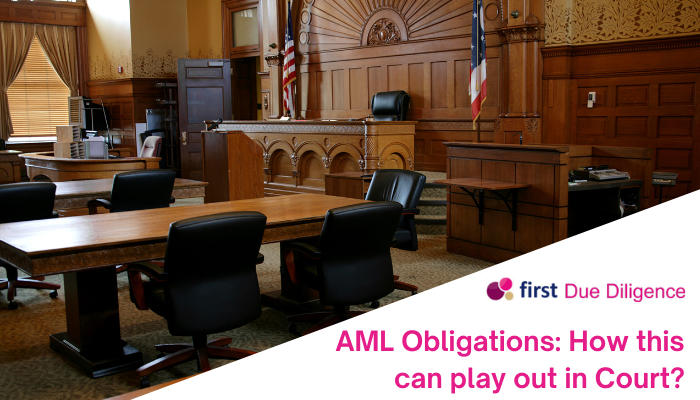How This Can Play out in Court
Accountants, solicitors, financial institutions and many other obliged entities have obligations in law to manage the risk of money laundering and terrorist financing. This is usually referred to as Anti Money Laundering or AML. In this piece, we look at the key elements of the AML process that may need attention to avoid your organisation getting drawn into court proceedings, and even more importantly, to ensure that your actions do not become a key element of the defence.
In addition to your obligation to comply with your requirements to obtain the correct information and to risk assess clients prior to engaging, it is advisable to consider three additional elements that could draw your firm into court proceedings.
Providing Information to the Authorities
Where an individual is suspected of an AML offence and the authorities decide to pursue that suspicion, they may ask your firm for information. The transfer of criminal data must be on the basis of a court order or subject to a specific law. Where a court order is provided, it is advisable to make sure that the instruction is specific and clear, and that the order is appropriately signed and dated. This normally represents a low risk to your firm.
However, when authorities rely on another mechanism such as the provisions of data protection legislation, individual requests are often written by a line officer. In our experience, this can be problematic. The wording can be loose and open to interpretation. Wording that is not precise and specific can deliver a defendant a credible line of defence and may destabilise a case.
We recommend that all such requests from a state authority are read carefully to consider how the request can be interpreted. Where it is not sufficiently precise, it should be returned and a precise version provided. It is often said that information provided slowly and lawfully is more valuable than information provided quickly without due process, and this is a prime example of that wisdom. Ensuring that requests for information are worded correctly and signed by an appropriate authority will protect your firm from unnecessary appearances in criminal proceedings.
Transfer of Suspicious Activity/Transaction Reports (Sar/Str) Information to Third Parties:
Where you engage with other providers that are also controllers e.g. a credit or debit card company, or a bank, they may seek to be informed of suspicious activity in relation the use of their services. However, the law only provides for information concerning suspicious transactions or activities to be reported to national authorities.
In the absence of specific direction from a competent authority (FCA in the UK, FIU in Ireland) we would caution against any sharing of this category of data. Additionally, where the requesting organisation requires the data to be transferred internationally, we would urge further caution. Typically the only organisations authorised to transfer this type of data to international locations are the competent authorities.
Consequently, should you transfer data without due care, a defence lawyer will typically use that information to defend a case and draw your firm into proceedings.
Record Keeping
While this may be routine in your firm, it is perhaps more important in the context of your AML obligations. Your obligation is not simply to be compliant but to be able to demonstrate compliance. While this plays an important role during practice reviews, it will have more far-reaching consequences in the context of a prosecution at the foot of evidence provided by your firm. AML Manager and another system can automate your processes and keep you organised, however, the individual attention of the MLRO to document their actions while reporting or sharing information is key. A robust record of actions and the rationale behind decisions is key to protecting your firm from deeper scrutiny.
In essence, the key learnings from our experience are to ensure that any request for criminal data is served in a manner that will not bring it into question in court, is signed by a relevant authority, and that your records are complete. These simple steps will serve to protect your firm from harm and protect you from unnecessary grilling by an experienced defence lawyer.

